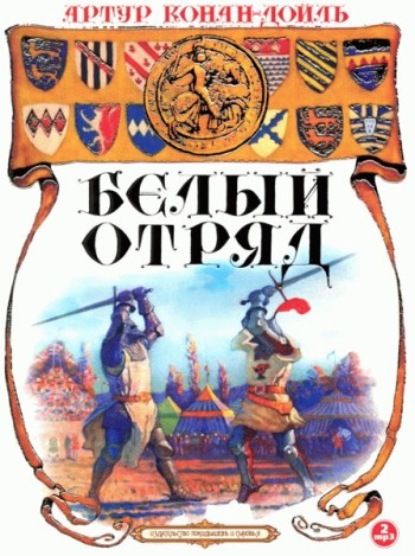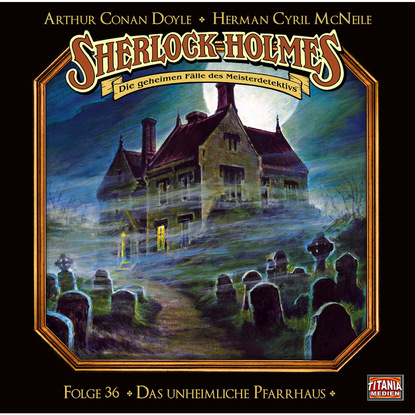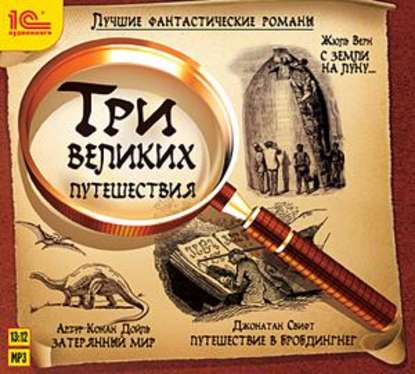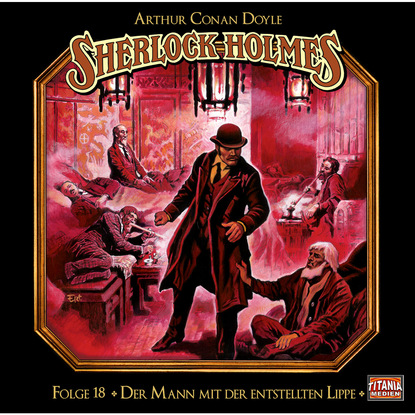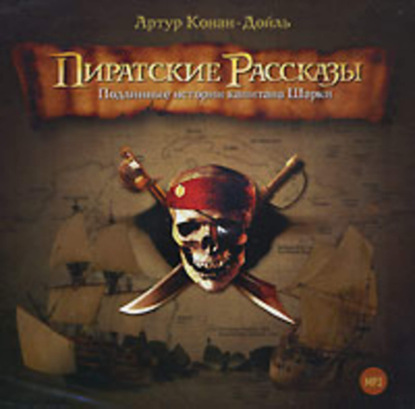 Полная версия
Полная версияПолная версия:
Артур Конан Дойл The Great Boer War
- + Увеличить шрифт
- - Уменьшить шрифт

The great Boer war
By Arthur Conan Doyle
Preface to the final edition
During the course of the war some sixteen Editions of this work have appeared, each of which was, I hope, a little more full and accurate than that which preceded it. I may fairly claim, however, that the absolute mistakes made have been few in number, and that I have never had occasion to reverse, and seldom to modify, the judgments which I have formed. In this final edition the early text has been carefully revised and all fresh available knowledge has been added within the limits of a single volume narrative. Of the various episodes in the latter half of the war it is impossible to say that the material is available for a complete and final chronicle. By the aid, however, of the official dispatches, of the newspapers, and of many private letters, I have done my best to give an intelligible and accurate account of the matter. The treatment may occasionally seem too brief but some proportion must be observed between the battles of 1899–1900 and the skirmishes of 1901–1902.
My private informants are so numerous that it would be hardly possible, even if it were desirable, that I should quote their names. Of the correspondents upon whose work I have drawn for my materials, I would acknowledge my obligations to Messrs. Burleigh, Nevinson, Battersby, Stuart, Amery, Atkins, Baillie, Kinneir, Churchill, James, Ralph, Barnes, Maxwell, Pearce, Hamilton, and others. Especially I would mention the gentleman who represented the 'Standard' in the last year of the war, whose accounts of Vlakfontein, Von Donop's Convoy, and Tweebosch were the only reliable ones which reached the public.
Arthur Conan Doyle, Undershaw, Hindhead: September 1902.
Chapter 1. The Boer nations
Take a community of Dutchmen of the type of those who defended themselves for fifty years against all the power of Spain at a time when Spain was the greatest power in the world. Intermix with them a strain of those inflexible French Huguenots who gave up home and fortune and left their country for ever at the time of the revocation of the Edict of Nantes. The product must obviously be one of the most rugged, virile, unconquerable races ever seen upon earth. Take this formidable people and train them for seven generations in constant warfare against savage men and ferocious beasts, in circumstances under which no weakling could survive, place them so that they acquire exceptional skill with weapons and in horsemanship, give them a country which is eminently suited to the tactics of the huntsman, the marksman, and the rider. Then, finally, put a finer temper upon their military qualities by a dour fatalistic Old Testament religion and an ardent and consuming patriotism. Combine all these qualities and all these impulses in one individual, and you have the modern Boer – the most formidable antagonist who ever crossed the path of Imperial Britain. Our military history has largely consisted in our conflicts with France, but Napoleon and all his veterans have never treated us so roughly as these hard-bitten farmers with their ancient theology and their inconveniently modern rifles.
Look at the map of South Africa, and there, in the very centre of the British possessions, like the stone in a peach, lies the great stretch of the two republics, a mighty domain for so small a people. How came they there? Who are these Teutonic folk who have burrowed so deeply into Africa? It is a twice-told tale, and yet it must be told once again if this story is to have even the most superficial of introductions. No one can know or appreciate the Boer who does not know his past, for he is what his past has made him.
It was about the time when Oliver Cromwell was at his zenith – in 1652, to be pedantically accurate – that the Dutch made their first lodgment at the Cape of Good Hope. The Portuguese had been there before them, but, repelled by the evil weather, and lured forwards by rumours of gold, they had passed the true seat of empire and had voyaged further to settle along the eastern coast. Some gold there was, but not much, and the Portuguese settlements have never been sources of wealth to the mother country, and never will be until the day when Great Britain signs her huge cheque for Delagoa Bay. The coast upon which they settled reeked with malaria. A hundred miles of poisonous marsh separated it from the healthy inland plateau. For centuries these pioneers of South African colonisation strove to obtain some further footing, but save along the courses of the rivers they made little progress. Fierce natives and an enervating climate barred their way.
But it was different with the Dutch. That very rudeness of climate which had so impressed the Portuguese adventurer was the source of their success. Cold and poverty and storm are the nurses of the qualities which make for empire. It is the men from the bleak and barren lands who master the children of the light and the heat. And so the Dutchmen at the Cape prospered and grew stronger in that robust climate. They did not penetrate far inland, for they were few in number and all they wanted was to be found close at hand. But they built themselves houses, and they supplied the Dutch East India Company with food and water, gradually budding off little townlets, Wynberg, Stellenbosch, and pushing their settlements up the long slopes which lead to that great central plateau which extends for fifteen hundred miles from the edge of the Karoo to the Valley of the Zambesi. Then came the additional Huguenot emigrants – the best blood of France three hundred of them, a handful of the choicest seed thrown in to give a touch of grace and soul to the solid Teutonic strain. Again and again in the course of history, with the Normans, the Huguenots, the Emigres, one can see the great hand dipping into that storehouse and sprinkling the nations with the same splendid seed. France has not founded other countries, like her great rival, but she has made every other country the richer by the mixture with her choicest and best. The Rouxs, Du Toits, Jouberts, Du Plessis, Villiers, and a score of other French names are among the most familiar in South Africa.
For a hundred more years the history of the colony was a record of the gradual spreading of the Afrikaners over the huge expanse of veld which lay to the north of them. Cattle raising became an industry, but in a country where six acres can hardly support a sheep, large farms are necessary for even small herds. Six thousand acres was the usual size, and five pounds a year the rent payable to Government. The diseases which follow the white man had in Africa, as in America and Australia, been fatal to the natives, and an epidemic of smallpox cleared the country for the newcomers. Further and further north they pushed, founding little towns here and there, such as Graaf-Reinet and Swellendam, where a Dutch Reformed Church and a store for the sale of the bare necessaries of life formed a nucleus for a few scattered dwellings. Already the settlers were showing that independence of control and that detachment from Europe which has been their most prominent characteristic. Even the sway of the Dutch Company (an older but weaker brother of John Company in India) had caused them to revolt. The local rising, however, was hardly noticed in the universal cataclysm which followed the French Revolution. After twenty years, during which the world was shaken by the Titanic struggle between England and France in the final counting up of the game and paying of the stakes, the Cape Colony was added in 1814 to the British Empire.
In all our vast collection of States there is probably not one the title-deeds to which are more incontestable than to this one. We had it by two rights, the right of conquest and the right of purchase. In 1806 our troops landed, defeated the local forces, and took possession of Cape Town. In 1814 we paid the large sum of six million pounds to the Stadholder for the transference of this and some South American land. It was a bargain which was probably made rapidly and carelessly in that general redistribution which was going on. As a house of call upon the way to India the place was seen to be of value, but the country itself was looked upon as unprofitable and desert. What would Castlereagh or Liverpool have thought could they have seen the items which we were buying for our six million pounds? The inventory would have been a mixed one of good and of evil; nine fierce Kaffir wars, the greatest diamond mines in the world, the wealthiest gold mines, two costly and humiliating campaigns with men whom we respected even when we fought with them, and now at last, we hope, a South Africa of peace and prosperity, with equal rights and equal duties for all men. The future should hold something very good for us in that land, for if we merely count the past we should be compelled to say that we should have been stronger, richer, and higher in the world's esteem had our possessions there never passed beyond the range of the guns of our men-of-war. But surely the most arduous is the most honourable, and, looking back from the end of their journey, our descendants may see that our long record of struggle, with its mixture of disaster and success, its outpouring of blood and of treasure, has always tended to some great and enduring goal.
The title-deeds to the estate are, as I have said, good ones, but there is one singular and ominous flaw in their provisions. The ocean has marked three boundaries to it, but the fourth is undefined. There is no word of the 'Hinterland;' for neither the term nor the idea had then been thought of. Had Great Britain bought those vast regions which extended beyond the settlements? Or were the discontented Dutch at liberty to pass onwards and found fresh nations to bar the path of the Anglo-Celtic colonists? In that question lay the germ of all the trouble to come. An American would realise the point at issue if he could conceive that after the founding of the United States the Dutch inhabitants of the State of New York had trekked to the westward and established fresh communities under a new flag. Then, when the American population overtook these western States, they would be face to face with the problem which this country has had to solve. If they found these new States fiercely anti-American and extremely unprogressive, they would experience that aggravation of their difficulties with which our statesmen have had to deal.
At the time of their transference to the British flag the colonists – Dutch, French, and German – numbered some thirty thousand. They were slaveholders, and the slaves were about as numerous as themselves. The prospect of complete amalgamation between the British and the original settlers would have seemed to be a good one, since they were of much the same stock, and their creeds could only be distinguished by their varying degrees of bigotry and intolerance. Five thousand British emigrants were landed in 1820, settling on the Eastern borders of the colony, and from that time onwards there was a slow but steady influx of English speaking colonists. The Government had the historical faults and the historical virtues of British rule. It was mild, clean, honest, tactless, and inconsistent. On the whole, it might have done very well had it been content to leave things as it found them. But to change the habits of the most conservative of Teutonic races was a dangerous venture, and one which has led to a long series of complications, making up the troubled history of South Africa. The Imperial Government has always taken an honourable and philanthropic view of the rights of the native and the claim which he has to the protection of the law. We hold and rightly, that British justice, if not blind, should at least be colour-blind. The view is irreproachable in theory and incontestable in argument, but it is apt to be irritating when urged by a Boston moralist or a London philanthropist upon men whose whole society has been built upon the assumption that the black is the inferior race. Such a people like to find the higher morality for themselves, not to have it imposed upon them by those who live under entirely different conditions. They feel – and with some reason – that it is a cheap form of virtue which, from the serenity of a well-ordered household in Beacon Street or Belgrave Square, prescribes what the relation shall be between a white employer and his half-savage, half-childish retainers. Both branches of the Anglo-Celtic race have grappled with the question, and in each it has led to trouble.
The British Government in South Africa has always played the unpopular part of the friend and protector of the native servants. It was upon this very point that the first friction appeared between the old settlers and the new administration. A rising with bloodshed followed the arrest of a Dutch farmer who had maltreated his slave. It was suppressed, and five of the participants were hanged. This punishment was unduly severe and exceedingly injudicious. A brave race can forget the victims of the field of battle, but never those of the scaffold. The making of political martyrs is the last insanity of statesmanship. It is true that both the man who arrested and the judge who condemned the prisoners were Dutch, and that the British Governor interfered on the side of mercy; but all this was forgotten afterwards in the desire to make racial capital out of the incident. It is typical of the enduring resentment which was left behind that when, after the Jameson raid, it seemed that the leaders of that ill-fated venture might be hanged, the beam was actually brought from a farmhouse at Cookhouse Drift to Pretoria, that the Englishmen might die as the Dutchmen had died in 1816. Slagter's Nek marked the dividing of the ways between the British Government and the Afrikaners.
And the separation soon became more marked. There were injudicious tamperings with the local government and the local ways, with a substitution of English for Dutch in the law courts. With vicarious generosity, the English Government gave very lenient terms to the Kaffir tribes who in 1834 had raided the border farmers. And then, finally, in this same year there came the emancipation of the slaves throughout the British Empire, which fanned all smouldering discontents into an active flame.
It must be confessed that on this occasion the British philanthropist was willing to pay for what he thought was right. It was a noble national action, and one the morality of which was in advance of its time, that the British Parliament should vote the enormous sum of twenty million pounds to pay compensation to the slaveholders, and so to remove an evil with which the mother country had no immediate connection. It was as well that the thing should have been done when it was, for had we waited till the colonies affected had governments of their own it could never have been done by constitutional methods. With many a grumble the good British householder drew his purse from his fob, and he paid for what he thought to be right. If any special grace attends the virtuous action which brings nothing but tribulation in this world, then we may hope for it over this emancipation. We spent our money, we ruined our West Indian colonies, and we started a disaffection in South Africa, the end of which we have not seen. Yet if it were to be done again we should doubtless do it. The highest morality may prove also to be the highest wisdom when the half-told story comes to be finished.
But the details of the measure were less honourable than the principle. It was carried out suddenly, so that the country had no time to adjust itself to the new conditions. Three million pounds were ear-marked for South Africa, which gives a price per slave of from sixty to seventy pounds, a sum considerably below the current local rates. Finally, the compensation was made payable in London, so that the farmers sold their claims at reduced prices to middlemen. Indignation meetings were held in every little townlet and cattle camp on the Karoo. The old Dutch spirit was up – the spirit of the men who cut the dykes. Rebellion was useless. But a vast untenanted land stretched to the north of them. The nomad life was congenial to them, and in their huge ox-drawn wagons – like those bullock-carts in which some of their old kinsmen came to Gaul – they had vehicles and homes and forts all in one. One by one they were loaded up, the huge teams were inspanned, the women were seated inside, the men, with their long-barrelled guns, walked alongside, and the great exodus was begun. Their herds and flocks accompanied the migration, and the children helped to round them in and drive them. One tattered little boy of ten cracked his sjambok whip behind the bullocks. He was a small item in that singular crowd, but he was of interest to us, for his name was Paul Stephanus Kruger.
It was a strange exodus, only comparable in modern times to the sallying forth of the Mormons from Nauvoo upon their search for the promised laud of Utah. The country was known and sparsely settled as far north as the Orange River, but beyond there was a great region which had never been penetrated save by some daring hunter or adventurous pioneer. It chanced – if there be indeed such an element as chance in the graver affairs of man – that a Zulu conqueror had swept over this land and left it untenanted, save by the dwarf bushmen, the hideous aborigines, lowest of the human race. There were fine grazing and good soil for the emigrants. They traveled in small detached parties, but their total numbers were considerable, from six to ten thousand according to their historian, or nearly a quarter of the whole population of the colony. Some of the early bands perished miserably. A large number made a trysting-place at a high peak to the east of Bloemfontein in what was lately the Orange Free State. One party of the emigrants was cut off by the formidable Matabeli, a branch of the great Zulu nation. The survivors declared war upon them, and showed in this, their first campaign, the extraordinary ingenuity in adapting their tactics to their adversary which has been their greatest military characteristic. The commando which rode out to do battle with the Matabeli numbered, it is said, a hundred and thirty-five farmers. Their adversaries were twelve thousand spearmen. They met at the Marico River, near Mafeking. The Boers combined the use of their horses and of their rifles so cleverly that they slaughtered a third of their antagonists without any loss to themselves. Their tactics were to gallop up within range of the enemy, to fire a volley, and then to ride away again before the spearmen could reach them. When the savages pursued the Boers fled. When the pursuit halted the Boers halted and the rifle fire began anew. The strategy was simple but most effective. When one remembers how often since then our own horsemen have been pitted against savages in all parts of the world, one deplores that ignorance of all military traditions save our own which is characteristic of our service.
This victory of the 'voortrekkers' cleared all the country between the Orange River and the Limpopo, the sites of what has been known as the Transvaal and the Orange Free State. In the meantime another body of the emigrants had descended into what is now known as Natal, and had defeated Dingaan, the great Chief of the Zulus. Being unable, owing to the presence of their families, to employ the cavalry tactics which had been so effective against the Matabeli, they again used their ingenuity to meet this new situation, and received the Zulu warriors in a square of laagered wagons, the men firing while the women loaded. Six burghers were killed and three thousand Zulus. Had such a formation been used forty years afterwards against these very Zulus, we should not have had to mourn the disaster of Isandhlwana.
And now at the end of their great journey, after overcoming the difficulties of distance, of nature, and of savage enemies, the Boers saw at the end of their travels the very thing which they desired least – that which they had come so far to avoid – the flag of Great Britain. The Boers had occupied Natal from within, but England had previously done the same by sea, and a small colony of Englishmen had settled at Port Natal, now known as Durban. The home Government, however, had acted in a vacillating way, and it was only the conquest of Natal by the Boers which caused them to claim it as a British colony. At the same time they asserted the unwelcome doctrine that a British subject could not at will throw off his allegiance, and that, go where they might, the wandering farmers were still only the pioneers of British colonies. To emphasise the fact three companies of soldiers were sent in 1842 to what is now Durban – the usual Corporal's guard with which Great Britain starts a new empire. This handful of men was waylaid by the Boers and cut up, as their successors have been so often since. The survivors, however, fortified themselves, and held a defensive position – as also their successors have done so many times since – until reinforcements arrived and the farmers dispersed. It is singular how in history the same factors will always give the same result. Here in this first skirmish is an epitome of all our military relations with these people. The blundering headstrong attack, the defeat, the powerlessness of the farmer against the weakest fortifications – it is the same tale over and over again in different scales of importance. Natal from this time onward became a British colony, and the majority of the Boers trekked north and east with bitter hearts to tell their wrongs to their brethren of the Orange Free State and of the Transvaal.
Had they any wrongs to tell? It is difficult to reach that height of philosophic detachment which enables the historian to deal absolutely impartially where his own country is a party to the quarrel. But at least we may allow that there is a case for our adversary. Our annexation of Natal had been by no means definite, and it was they and not we who first broke that bloodthirsty Zulu power which threw its shadow across the country. It was hard after such trials and such exploits to turn their back upon the fertile land which they had conquered, and to return to the bare pastures of the upland veld. They carried out of Natal a heavy sense of injury, which has helped to poison our relations with them ever since. It was, in a way, a momentous episode, this little skirmish of soldiers and emigrants, for it was the heading off of the Boer from the sea and the confinement of his ambition to the land. Had it gone the other way, a new and possibly formidable flag would have been added to the maritime nations.
The emigrants who had settled in the huge tract of country between the Orange River in the south and the Limpopo in the north had been recruited by newcomers from the Cape Colony until they numbered some fifteen thousand souls. This population was scattered over a space as large as Germany, and larger than Pennsylvania, New York, and New England. Their form of government was individualistic and democratic to the last degree compatible with any sort of cohesion. Their wars with the Kaffirs and their fear and dislike of the British Government appear to have been the only ties which held them together. They divided and subdivided within their own borders, like a germinating egg. The Transvaal was full of lusty little high-mettled communities, who quarreled among themselves as fiercely as they had done with the authorities at the Cape. Lydenburg, Zoutpansberg, and Potchefstroom were on the point of turning their rifles against each other. In the south, between the Orange River and the Vaal, there was no form of government at all, but a welter of Dutch farmers, Basutos, Hottentots, and halfbreeds living in a chronic state of turbulence, recognising neither the British authority to the south of them nor the Transvaal republics to the north. The chaos became at last unendurable, and in 1848 a garrison was placed in Bloemfontein and the district incorporated in the British Empire. The emigrants made a futile resistance at Boomplaats, and after a single defeat allowed themselves to be drawn into the settled order of civilised rule.
At this period the Transvaal, where most of the Boers had settled, desired a formal acknowledgment of their independence, which the British authorities determined once and for all to give them. The great barren country, which produced little save marksmen, had no attractions for a Colonial Office which was bent upon the limitation of its liabilities. A Convention was concluded between the two parties, known as the Sand River Convention, which is one of the fixed points in South African history. By it the British Government guaranteed to the Boer farmers the right to manage their own affairs, and to govern themselves by their own laws without any interference upon the part of the British. It stipulated that there should be no slavery, and with that single reservation washed its hands finally, as it imagined, of the whole question. So the South African Republic came formally into existence.
